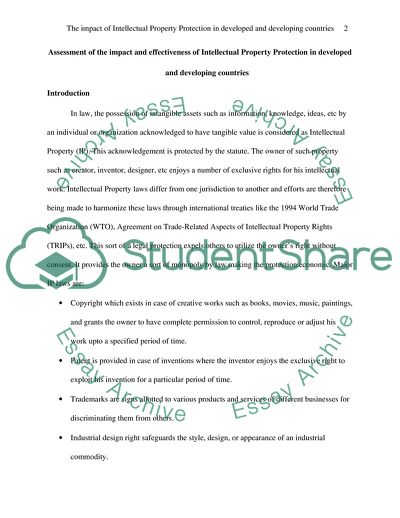Cite this document
(The Impact of Intellectual Property Protection in Developed Countries Case Study, n.d.)
The Impact of Intellectual Property Protection in Developed Countries Case Study. Retrieved from https://studentshare.org/law/1705747-critically-assess-the-impact-and-effectiveness-of-intellectual-property-protection-from-the-point-of-view-of-those-in-both-developed-and-developing-countries
The Impact of Intellectual Property Protection in Developed Countries Case Study. Retrieved from https://studentshare.org/law/1705747-critically-assess-the-impact-and-effectiveness-of-intellectual-property-protection-from-the-point-of-view-of-those-in-both-developed-and-developing-countries
(The Impact of Intellectual Property Protection in Developed Countries Case Study)
The Impact of Intellectual Property Protection in Developed Countries Case Study. https://studentshare.org/law/1705747-critically-assess-the-impact-and-effectiveness-of-intellectual-property-protection-from-the-point-of-view-of-those-in-both-developed-and-developing-countries.
The Impact of Intellectual Property Protection in Developed Countries Case Study. https://studentshare.org/law/1705747-critically-assess-the-impact-and-effectiveness-of-intellectual-property-protection-from-the-point-of-view-of-those-in-both-developed-and-developing-countries.
“The Impact of Intellectual Property Protection in Developed Countries Case Study”. https://studentshare.org/law/1705747-critically-assess-the-impact-and-effectiveness-of-intellectual-property-protection-from-the-point-of-view-of-those-in-both-developed-and-developing-countries.


